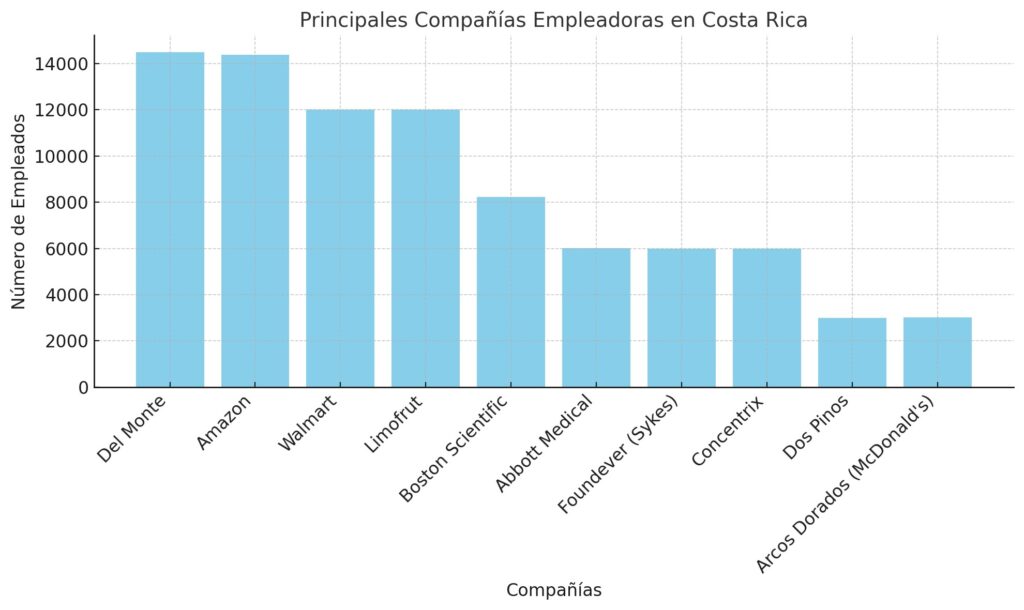The Mandatory Return to the Office: Economic and Labor Impact of Amazon’s New Policy in Costa Rica
Amazon has announced that, starting in January 2025, all its corporate employees will be required to return to the office five days a week. This decision, communicated by CEO Andy Jassy, is based on the supposed advantages of face-to-face collaboration, such as greater team cohesion, a stronger company culture, and an environment more conducive to innovation and problem-solving.
Implications for employees in Costa Rica
In the specific case of Costa Rica, where Amazon has more than 14,000 employees, the measure will have a significant impact. Many employees reorganized their personal lives around remote work during the pandemic, including the ability to live outside of urban areas or reduced transportation and rent costs. A full return to the office, with little flexibility, could lead to inconveniences for those who have adjusted their lives around this hybrid model. In addition, issues such as transportation costs and childcare management are key concerns that could affect job satisfaction.
Benefits and Harms for Amazon and its Employees
Benefits for Amazon: From the company’s point of view, it seeks to strengthen internal culture, improve collaboration between teams and accelerate decision-making. This could translate into increased productivity and improved project quality.
Employee Harms: Employees, however, could experience a decrease in their job satisfaction due to the loss of flexibility. This could affect talent retention, as other companies, such as Google or Apple, are offering more flexible work models, putting Amazon at a competitive disadvantage in the war to attract and retain talent in a highly competitive job market.
Legal and Labor Approaches
From a legal perspective in Costa Rica, any change in working conditions must respect the Labor Code, which protects the rights of employees. Any substantial modification in these conditions, such as the requirement to work in person, must be communicated well in advance, and it is important to consider previous employment agreements. In addition, if this policy affects employees who previously had the option of teleworking, companies should review whether these changes comply with the stipulations of contracts and labor legislation.
Recommendations:
- Gradual approach: To minimize the impact on employees, Amazon might consider a gradual and flexible return, allowing certain days of telecommuting depending on the needs of the team and the individual.
Employee support: Offering subsidies for transportation or child care support could ease the additional burdens some employees will face with returning to in-person.
- Internal surveys: Listening to employees through surveys could help adjust policies and prevent significant talent loss.
- Technological adaptation: Consider the use of technology to hold certain meetings virtually, allowing flexibility and avoiding space overload in offices.
This approach could mitigate the negative effects and maximize the benefits for both Amazon and its workforce in Costa Rica.
Economic and financial implications
Amazon is one of the largest companies in Costa Rica, with 14,375 employees, according to the latest data. Its impact on the labour market is undeniable, especially in the services sector, which has experienced explosive growth in the last decade. As Amazon returns to in-person, several economic consequences can be foreseen:
- Increase in local consumption: The return of thousands of employees to the office will imply greater spending on services such as transportation, food and commerce in the areas where Amazon’s offices are located. This could boost sectors such as public and private transportation, as well as small local businesses that rely on the steady flow of workers.
- Operating costs for employees: Although the local economy could benefit, employees will face higher costs related to transportation, food and, in some cases, rent in areas closer to the offices. This increase in personal expenses can lead to a decrease in family savings and could generate pressure for some employees to seek work alternatives with greater flexibility.
- Impact on productivity: Amazon argues that face-to-face will strengthen collaboration and the company’s internal culture, which will translate into greater productivity. However, recent studies suggest that productivity in hybrid or remote work has been comparable or even higher in certain sectors. The imposition of a strict face-to-face model could, on the contrary, lead to a decrease in the morale of some employees, which would negatively affect their performance.
Implications for Human Resources
From a human resources perspective, Amazon’s decision also poses significant challenges for both talent retention and personnel management:
- Talent retention: In a highly competitive market, where other tech companies offer hybrid or remote models, Amazon could face a brain drain to competitors that offer greater flexibility. Companies such as Google, Apple, and Meta (Facebook) continue to offer hybrid models, which puts Amazon at a potential competitive disadvantage in terms of attracting and retaining highly skilled employees.
- Labor restructuring: In terms of internal management, Amazon will likely need to revise its HR policies to address employee concerns about work-life balance. Things like transportation subsidies, childcare support programs, or salary adjustments to offset the additional costs involved in returning to the office will be crucial to avoid a decline in job satisfaction.
- Workspace adaptation: The mass return to the office could also require a re-evaluation of the available physical space. In Costa Rica, many offices adopted more flexible work arrangements during the pandemic, which allowed for a reduction in the necessary infrastructure. Refilling these spaces will require investments in maintenance and technologies that facilitate collaborative in-person work.
Overview for Costa Rica
In the broader context of Costa Rica, where the private sector employs 86% of the workforce, the return to face-to-face work at companies like Amazon represents a major structural adjustment in the labor market. Local and foreign companies are watching these decisions closely, and some could follow Amazon’s lead, while others could take the opportunity to position themselves as flexible employers, attracting talent looking to work remotely.
At the macroeconomic level, while Amazon contributes significantly to the formalization of employment and the dynamism of the service sector, the mandatory return to the office raises questions about the future direction of the labor market. With the percentage of informal workers remaining high (38.4%), the transition to a more rigid model could increase inequality between those with high-profile formal jobs and those who still rely on informal jobs.

Conclusion
From an economic and HR perspective, Amazon’s decision will bring a mix of benefits and challenges. To mitigate the negative effects, it would be advisable for Amazon to implement supportive policies for its employees in Costa Rica, such as subsidies or incentives, and maintain an open dialogue with its workforce to prevent a brain drain. The future of employment in Costa Rica, particularly in the technology and services sector, will depend on the ability of companies to balance productivity with the labor flexibility demanded by current times.




